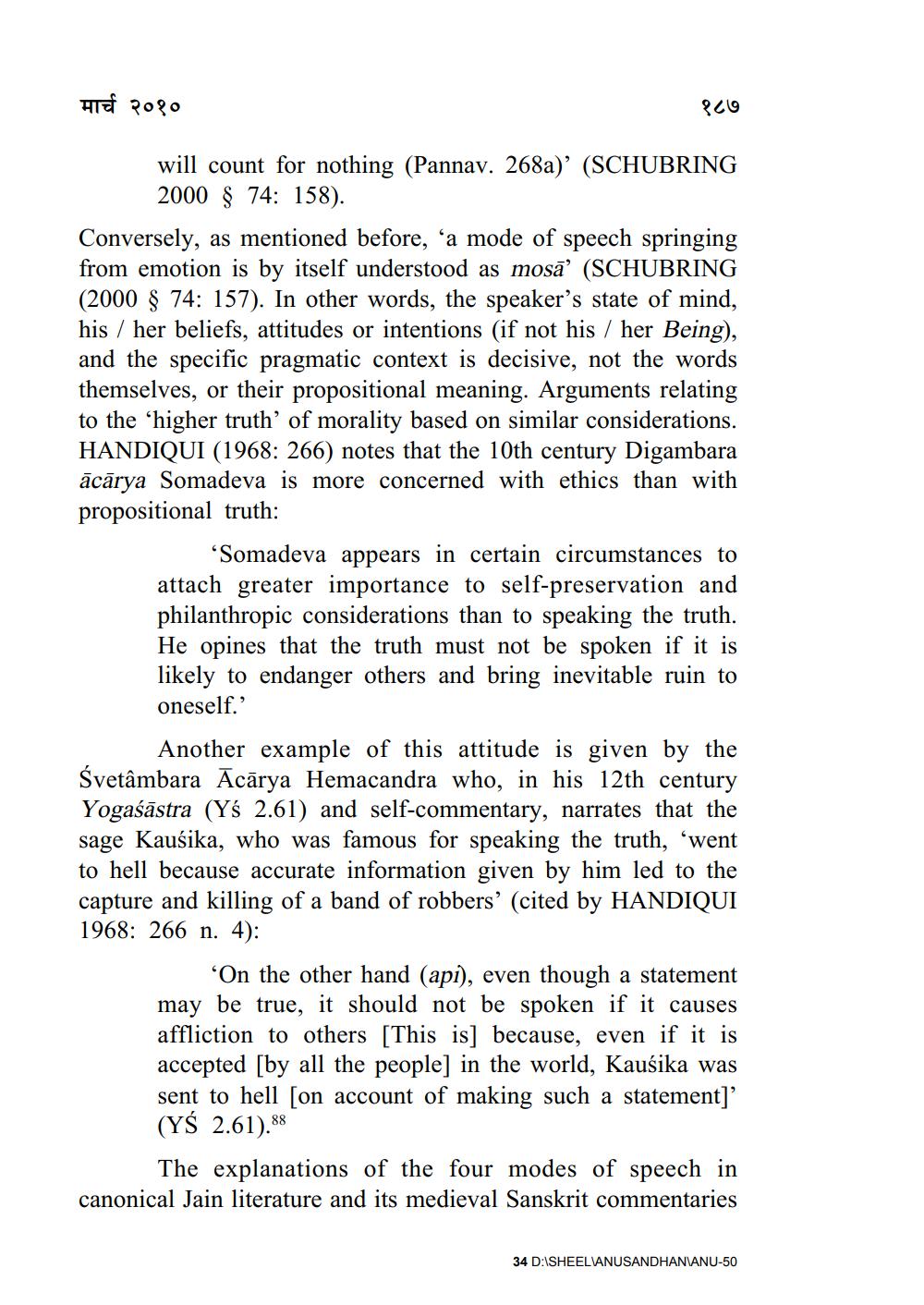________________
मार्च २०१०
१८७
will count for nothing (Pannav. 268a)' (SCHUBRING 2000 § 74: 158).
Conversely, as mentioned before, 'a mode of speech springing from emotion is by itself understood as mosa' (SCHUBRING (2000 § 74: 157). In other words, the speaker's state of mind, his/her beliefs, attitudes or intentions (if not his/her Being), and the specific pragmatic context is decisive, not the words themselves, or their propositional meaning. Arguments relating to the 'higher truth' of morality based on similar considerations. HANDIQUI (1968: 266) notes that the 10th century Digambara ācārya Somadeva is more concerned with ethics than with propositional truth:
'Somadeva appears in certain circumstances to attach greater importance to self-preservation and philanthropic considerations than to speaking the truth. He opines that the truth must not be spoken if it is likely to endanger others and bring inevitable ruin to oneself.'
Another example of this attitude is given by the Śvetâmbara Acarya Hemacandra who, in his 12th century Yogaśastra (Yś 2.61) and self-commentary, narrates that the sage Kausika, who was famous for speaking the truth, 'went to hell because accurate information given by him led to the capture and killing of a band of robbers' (cited by HANDIQUI 1968: 266 n. 4):
'On the other hand (api), even though a statement may be true, it should not be spoken if it causes affliction to others [This is] because, even if it is accepted [by all the people] in the world, Kausika was sent to hell [on account of making such a statement]' (YŚ 2.61).88
The explanations of the four modes of speech in canonical Jain literature and its medieval Sanskrit commentaries
34 D:\SHEELVANUSANDHANIANU-50




